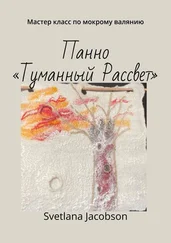She put her father in a home, reminding him that his senescence was punishment for his nature, and travelled north. The fossil-hunting did not go well at first. She laughed at her own naivety. Did she expect she would find her necessary opposite sitting up in a field, like a hare at dusk, waiting to be seen? Did she think a family of them would roll up at the public house where she liked to drink a tomato juice before going home to make herself a salad, and wonder what had taken her so long? And would she recognise them when she saw them, anyway?
It was in the nature of the problem that she had never, of course — knowingly, at least — met any. She had done a fair amount of reading but wasn’t sure about the reliability of the sources she consulted. A children’s story from the previous century, for example, cited as distinguishing features the puffy lips, the fleshy eyelids, the low, receding forehead, the large ears like the handles of a coffee cup — eine Kaffeetasse — the short arms, the bow-leggedness, the shuffling gait, the jabbering voice, the sickly-sweet odour — I shouldn’t have too much trouble noticing if one of those stumbles past, Esme laughed. From more recent publications she learnt about the drooping eyes and jowly faces, the thinning hair, the thick eyeglasses, the large floppy breasts (on the men as well as the women). Best of all — she read — throw a handful of coins in a pool, the person quickest to dive in is the person you’re looking for. Well she wasn’t going to do that. But then what reason was there to believe they would still look and act as they had two or three generations earlier? If any had survived was it not likely that they’d have taken care to alter their appearance and demeanour, or more likely still that, exiled from their communities, they’d have assumed the manners and lineaments of their neighbours, and not only forgotten what they were supposed to look like but who they were supposed to be? I could be living next to one and not know, Esme realised. I could be living next door to a whole family and they might not know.
She wasn’t, of course, the only person looking, even in as remote a place as Edenhope where she had decided, in her own words, to set up camp. She debriefed agents on a regular basis, sometimes getting them to report to her in person, sometimes by utility-phone conference call. Some she felt she could rely on more than others, and many had not been told who in fact they were looking for. They were paid to keep their eyes open, that was all. For who? For what? Simply for anyone behaving strangely, out of character with the community, anyone local people thought suspicious, of dubious provenance. For a multitude of reasons, but most of all so as not to set up the wrong sort of expectations, Esme omitted all mention of slanting foreheads and shuffling gait. If these lesser agents supposed they were hunting down such minor infractions against the Present as heirloom hoarding or spending too much time in reference libraries then so much the better. Softlee softlee catchee money. Monkey, beg your pardon. She didn’t want any possibles scared off by unsubtle, overenthusiastic investigation. And a reference library, that immemorial refuge of the dispossessed, was not a bad place to be looking, little help as the limited archives available would give those wondering who they were and where they’d come from.
‘Another wild goose chase,’ she would say wearily to herself, after a trail of clues ended nowhere. Sociologically, it was interesting to discover how many misfits even the smallest hamlets yielded. How many runaway wives or husbands, how many defectors of one sort or the other — from responsibility, from debt, from the law, from careers, from gender — how many were judged, rightly or wrongly, to be foreigners, illegal immigrants, gypsies, visitors from another solar system even. Was there anyone, she sometimes wondered, who wasn’t alien to someone else? The surprise, given this degree of social mistrust, was that more hadn’t HAPPENED and indeed wasn’t HAPPENING now. But this just went to show how right she had been in her analysis: those who had been the object of WHAT HAPPENED weren’t just any old, interchangeable excuse for civil riot, they occupied a particular, even privileged, place in the nation’s taxonomy of fear and loathing.
After several years of unrewarded endeavour, at the end of which Esme Nussbaum thought she had finally worn out what remained of her energies, an exciting piece of information came her way. The agent responsible for it was precisely one of those who knew nothing of what they were about and were therefore always more likely, in Esme’s view, to yield a result. She felt tentatively vindicated. It all came from one or two fairly innocuous questions being asked about boxes of letters found stored in a convent.
A convent! Esme Nussbaum threw her head back and laughed, as she often did at things that weren’t funny, like a crazy woman. She found the idea of a convent so ludicrously incongruous she was certain it was going to yield something. Something big or something small she didn’t know, but something. .
She suddenly felt years younger.
Barely two months later, she was to be seen extending her hand and flashing her brightest and most motherly smile. ‘Hello, I’m Ez,’ she said.
‘Hello, Ez,’ said Ailinn Solomons.
TEN. Lost and Found and Lost Again
i
THERE ARE TIMES in your life, he thought, when you need to see an animal. Not a dog or a cat — they carried too many associations of the humans whose feet they clung to. Something unconnected. Something wild. Seals, he decided were the thing. From his bench he could sometimes see them, their bald heads bobbing about in the ocean. Were there hunchback seals whose totemic disfigurement at one and the same time shamed their progeny and guaranteed them immunity. Immunity from what? From whatever vengeance seals meted out to one another for offences buried deep in seal history. Your colleagues detest you, the librarian had told him. In fact the word she’d used was ‘mistrust’, but to him that was just splitting hairs. Did seals detest?
They weren’t out there, anyway. After an hour or more of looking, he gave up on them and returned reluctantly to his cottage. There was no explaining why he did that. He could have gone on watching. Or gone for a stiff, dizzying walk. Shaken stuff out of his head. Let the wind blow him about. If there were times in your life when you needed to see an animal, there were also times in your life when you needed to be an animal.
There were no visitors. He had the cliffs to himself. He could have scampered, sniffed the ground, rubbed his nose in droppings, howled, screamed. Beyond a general impression of height and risk and isolation, he didn’t know the cliffs on which he’d so often walked. He sedulously avoided looking, as though ignorance of his surroundings, particularly an ignorance of what grew beneath his feet, was a metaphysical necessity to him. Now was his chance. But he didn’t take it. Instead, he let monotonous mortal habit claim him. And back down to his cottage he went.
It wasn’t even as though he was in the mood for work. On some days his lathe answered every anxiety. The whirl of the spindle shut out his thoughts, all the concentrated frustration in his body vanished at the point where he held the handle of the chisel as gently as he might have held the fingers of a child. The wood curled beneath its blade, like the hair of that same child becoming unloosed from a bonnet. He favoured a light touch, not always knowing exactly what he wanted to make. Let it turn itself, he thought on good days, let it turn out as it chooses. If the bowl was waiting in the wood, then God was waiting in the bowl as surely as love had been waiting — a long, long time waiting — in the spoons he’d carved for Ailinn. But not today. No curls, no God, no Ailinn. It was like waiting for a storm to break.
Читать дальше












